In the pantheon of Greek mythology, Bellerophon stands as a paragon of bravery and tragedy, a demigod whose tale weaves through the threads of mortal challenges and divine interactions. This article delves into the multi-faceted story of Bellerophon, guided by a meticulous examination of ancient texts such as Homer’s “Iliad” and complemented by modern scholarly interpretations. As an author with a profound background in mythology and historical research, I bring forth a narrative enriched with original insights, drawing from a wellspring of academic study and personal analysis. The ensuing exploration is not just a retelling but an investigation into Bellerophon’s enduring legacy, aiming to offer readers a comprehensive and authoritative account of one of mythology’s most complex heroes.
| Origin | Greek Mythology |
|---|---|
| Classification | Hero |
| Family Members | Glaucus (Father), Eurynome (Mother), Pegasus (Companion) |
| Region | Corinth, Greece |
| Associated with | Taming Pegasus, Defeating the Chimera, Quests, Tragic Downfall |
1. The Birth and Lineage of Bellerophon
Bellerophon, the storied hero of Greek mythology, was born to mortal royalty, yet his saga is steeped in the divine. His lineage is a tapestry of mortal and celestial threads, with his father traditionally identified as Glaucus, the king of Corinth, and his mother as Eurynome, according to Hesiod’s account. However, other sources, including Pindar in his “Olympian Odes,” suggest a more divine paternity, attributing his birth to the sea god Poseidon. This dual claim to both human and divine heritage is not uncommon in Greek myths, as it sets the stage for the extraordinary lives heroes like Bellerophon are destined to lead.
From his first breath, Bellerophon’s life was marked by the gods’ touch. Homer’s “Iliad” references his divine favor, describing him as “the most distinguished of men and the greatest of warriors,” a testament to his Olympian connection. His journey from a mere mortal to a hero favored by the goddess Athena and granted the magnificent Pegasus by Poseidon reflects the intricate relationship between gods and heroes in Greek lore.
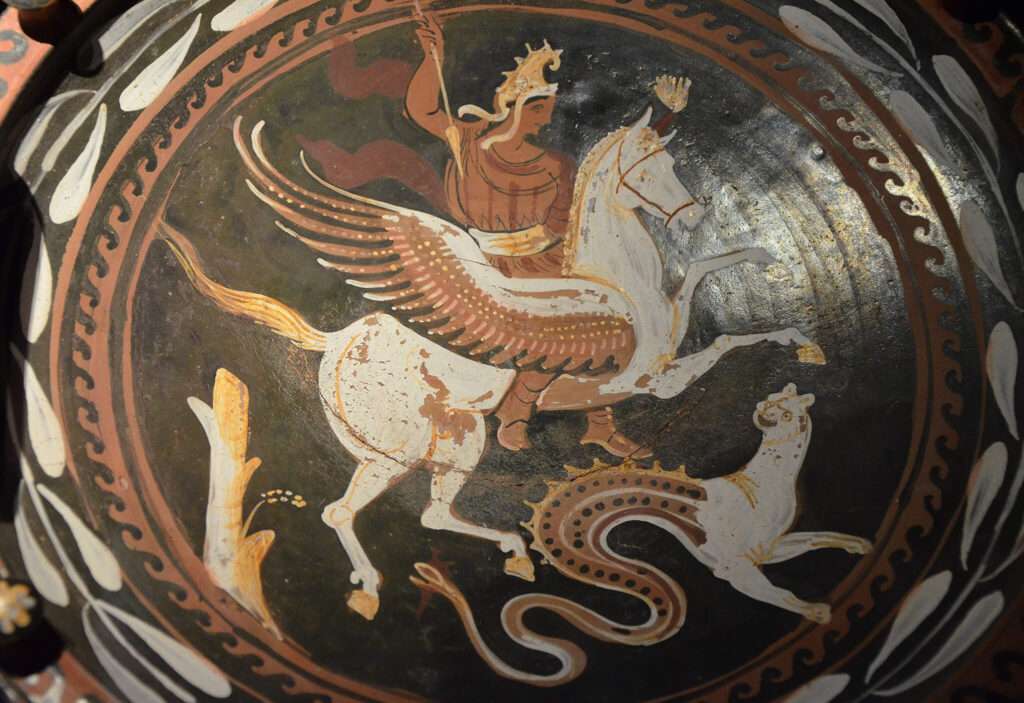
Bellerophon’s divine lineage afforded him prowess and privileges that set the scene for his legendary exploits. His story is not just one of heroic feats but also a narrative that demonstrates the complexities of Greek divinity and its impact on the mortal realm. The ancient texts not only recount his adventures but also embed in them the cultural values and the theological beliefs of ancient Greece, offering us a glimpse into the world that revered him as a hero amongst men and gods alike.
2. Bellerophon and the Winged Steed Pegasus
The union between Bellerophon and the winged steed Pegasus stands as one of the most enchanting tales of Greek mythology. Pegasus, born from the blood of the Gorgon Medusa after she was slain by Perseus, was a creature of pure wonder and majesty. Bellerophon’s desire to capture this elusive being was no small feat. The ancient texts, particularly Pindar’s “Pythian Odes,” recount that it was with the aid of the goddess Athena that Bellerophon came to possess a golden bridle, the key to taming the magnificent Pegasus.
The act of taming Pegasus is rich in symbolic meaning, emblematic of man’s endeavor to harness the divine or the untamable forces of nature. Pegasus, in the realm of Greek culture, represents not only poetic inspiration and the soaring of the human spirit but also the ambition to achieve the impossible. Scholars often interpret this union as the perfect harmony between heroism and the divine will, a balance between the earthly and the ethereal.
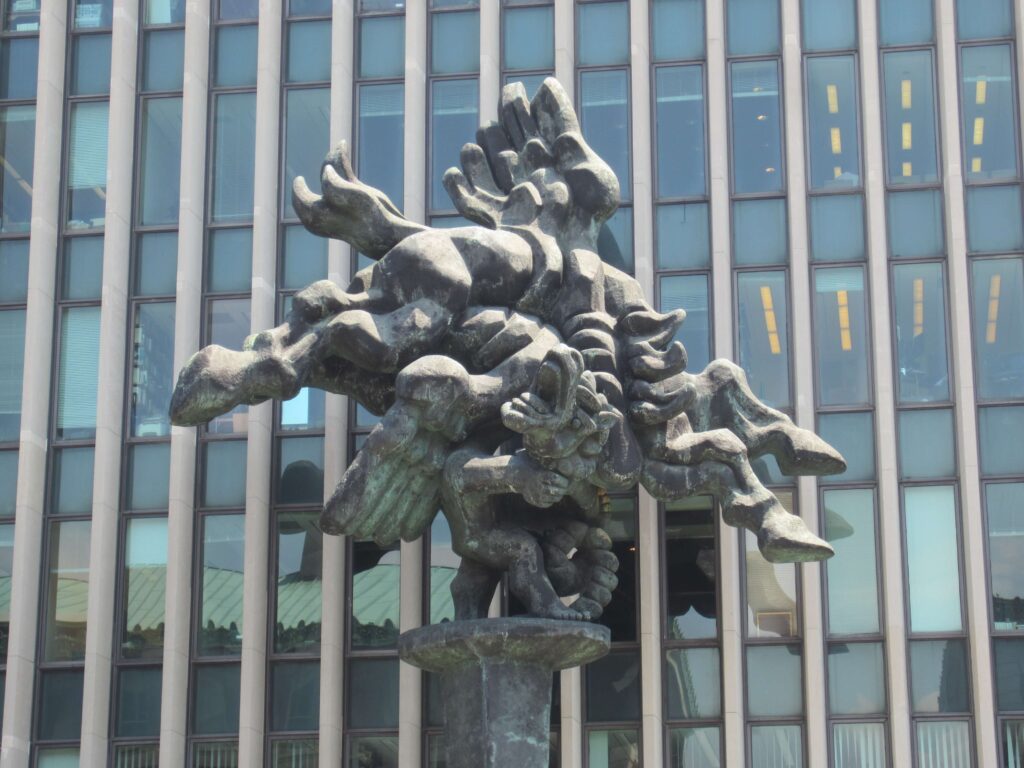
Bellerophon’s mastery over Pegasus allowed him to complete heroic tasks, but it also spoke to the Greeks’ belief in the favor of the gods being the ultimate catalyst for achieving greatness. This symbiotic relationship between hero and steed encapsulated the ideals of courage, strength, and divine blessing, which were central to the mythological narratives of the time and continue to resonate through centuries of cultural storytelling.
3. Bellerophon’s Heroic Feats
Bellerophon, astride the winged Pegasus, is most renowned for his conquest of the Chimera, a monstrous creature with a lion’s head, a goat’s body, and a serpent’s tail—a symbol of insurmountable chaos and destruction. The challenge was set forth by King Iobates, who sought Bellerophon’s demise, underestimating the hero’s divine favor. The “Iliad” recounts this deed, immortalizing Bellerophon’s bravery as he soared above the Chimera, out of reach of its fiery breath, and drove a lead-tipped spear into its maw, effectively silencing the beast.
Beyond the Chimera, Bellerophon faced myriad other challenges, each chronicled in the rich tapestry of Greek epics and plays, including battles against the fierce Solymi and the Amazons, and his pivotal role in the war against the Lycians. These tales, while not always consistently portrayed, share a common thread highlighting Bellerophon’s valor and strategic prowess.
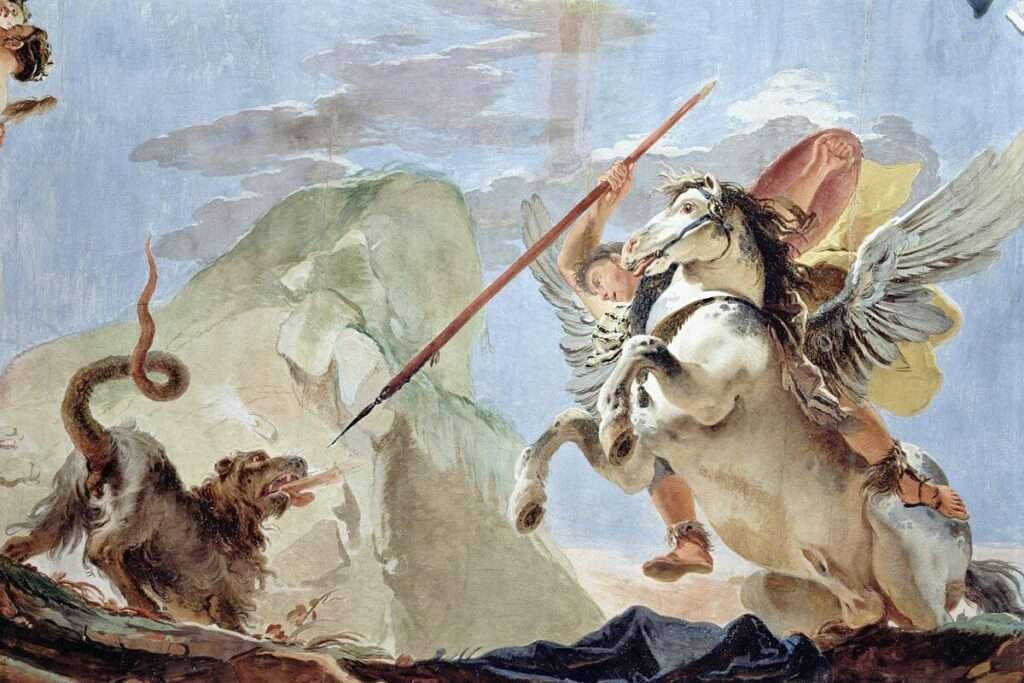
Historical and archaeological evidence for these tales, while scarce, does offer some support. Ancient Lycian and Corinthian ruins bear carvings and inscriptions that some scholars suggest may depict the legendary hero’s encounters, providing a tangible link to the mythic past. These artifacts, though open to interpretation, enrich the narrative of Bellerophon, allowing a blend of myth and material culture to narrate a story that has captivated human imagination for millennia.
4. The Downfall of Bellerophon
The zenith of Bellerophon’s storied life was mirrored by an equally profound nadir, a downfall precipitated by the sin of hubris. In the height of his glory, after vanquishing the Chimera and overcoming the trials set by King Iobates, Bellerophon attempted to ascend to Mount Olympus, the realm of the gods—a grievous act of arrogance that defied human limitations. The gods, notably Zeus, punished him for this transgression by sending a gadfly to sting Pegasus, causing Bellerophon to fall back to Earth, where he lived out his days in obscurity and misery, shunned by both gods and mortals.
The lesson of Bellerophon’s fall is a cornerstone of Greek mythology, serving as a cautionary tale of the consequences of human overreach. The Greeks saw hubris not merely as excessive pride but as a defiance of the natural order, warranting divine retribution. The psychological depth of Bellerophon’s narrative reflects the ancient Greek understanding of human nature, a complex interplay of ambition, temptation, and the inevitable reality of human limitations.
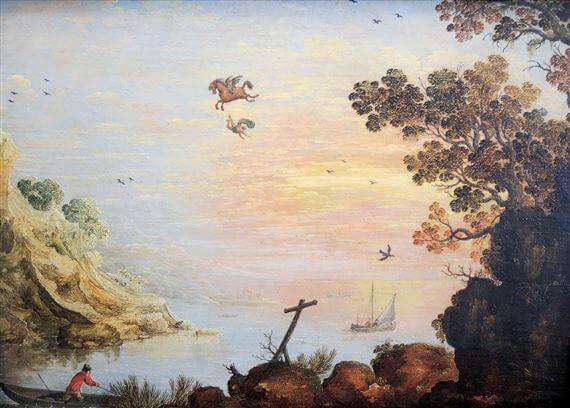
Philosophical analyses of Bellerophon’s story often highlight the delicate interplay between fate and free will. Bellerophon’s attempt to overstep his mortal bounds can be seen as a tragic flaw, an innate character defect leading to his downfall. This mirrors the philosophical inquiries of Socrates, Plato, and Aristotle, who debated the virtues of moderation and the perils of excess. Bellerophon’s life journey, from grace to disgrace, thus provides a profound commentary on the human condition, serving as a timeless reflection on the perils of pride and the virtues of humility.
5. Bellerophon’s Legacy in Ancient and Modern Culture
The myth of Bellerophon has echoed through the ages, leaving a substantial imprint on both ancient Greek culture and the modern zeitgeist. In antiquity, Bellerophon’s exploits were celebrated in pottery, sculptures, and temple friezes, illustrating the cultural admiration for his heroism and the cautionary tale of his pride. His image adorned the walls of palaces and the armor of warriors, serving as an emblem of martial prowess and a reminder of the virtue of humility.
In ancient literature, poets and playwrights from Hesiod to Euripides recounted his deeds, each adding layers of interpretation to the hero’s character. His story was a staple of Greek education, used to illustrate moral lessons and the principles of Greek theology and philosophy. Bellerophon’s journey from glory to downfall provided a narrative framework for exploring themes of fate, divine justice, and human limitations.
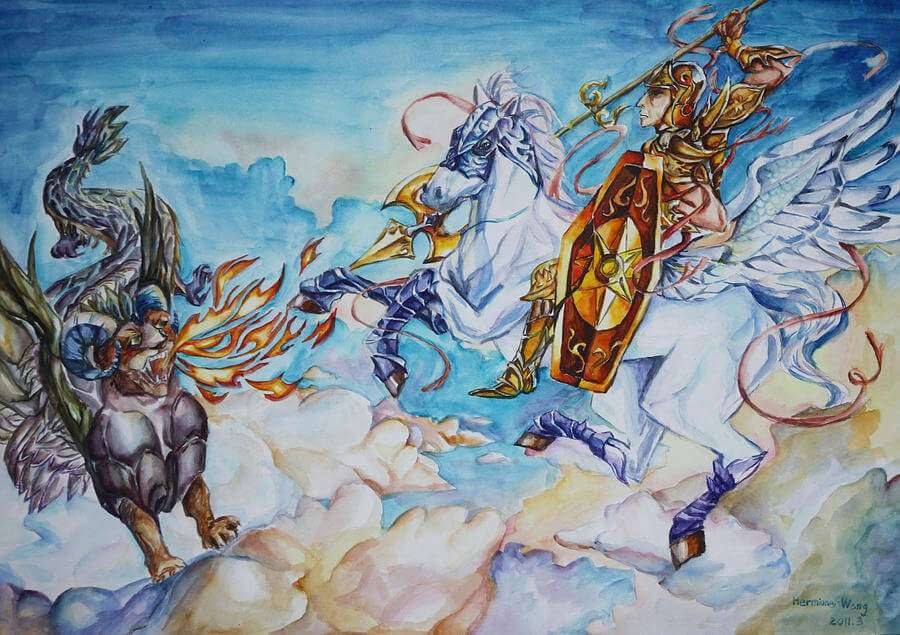
Transitioning to modern culture, Bellerophon’s influence persists in literature, film, and other media, where the archetypal hero’s quest and fall from grace resonate in contemporary storytelling. His story has been reinterpreted in novels, operas, and films, reflecting the timeless human fascination with the flawed hero. Modern psychological studies often reference Bellerophon when discussing the dangers of narcissism and the psychological impacts of high achievement followed by rapid descent.
The legacy of Bellerophon, therefore, transcends historical epochs, informing our understanding of heroism and morality. His story, in all its complexity, continues to be relevant, providing a mirror for contemporary society to examine the perennial human struggles with ambition, morality, and the search for meaning.
6. Conclusion
In conclusion, Bellerophon’s odyssey from a mortal of noble lineage to a hero endowed with divine favor, and eventually to a cautionary symbol of human folly, encapsulates the quintessential elements of Greek myth. His story is a rich tapestry that weaves together the dual threads of human ambition and the stringent justice of the gods, serving as a timeless allegory of the potential and limits of human nature. For modern readers, Bellerophon’s narrative offers valuable lessons on the importance of self-awareness and the perils of hubris. It encourages a balanced pursuit of one’s aspirations, warning of the grave consequences of overreaching, and underscores the enduring wisdom of ancient myths in understanding the complexities of the human spirit.
